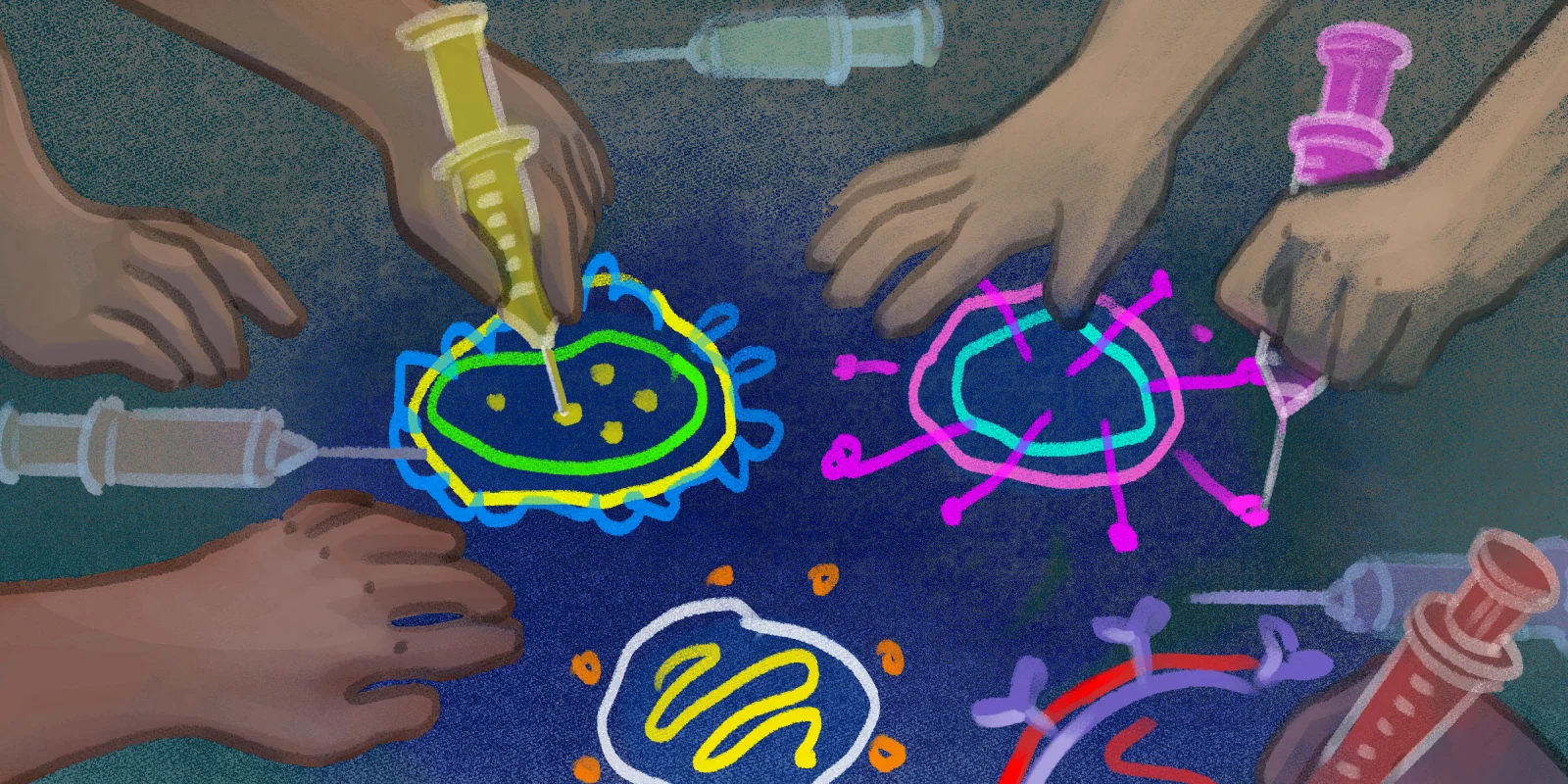“Here is Ms. Arocha!” my medical assistant, Sandra, announced in a cheery voice as she wheeled my next patient into the room.
I introduced myself and offered the patient my hand: “Hi, I’m Dr. Mouli.”
“Hi, I’m Lori, but I can’t shake your hand,” she stated matter-of-factly, revealing her contracted and paralyzed right hand.
I recovered my composure quickly and took her left hand and shook it. Out of the corner of my eye, I glanced at the electronic chart open on my computer screen. It included a scattered list of every ailment for which Lori had ever seen a physician: diabetes mellitus, hypertension, upper respiratory tract infection, hyperlipidemia, anxiety, and others. But as far as I could see, nothing to explain why she was in a wheelchair or why she could not shake my hand. I made eye contact with Lori again.
She smiled. “I think my last doctor put polio all the way down towards the end of my medical problem list, once I started acquiring so many other things like diabetes and high blood pressure,” she said.
“Oh,” I said ineloquently, showing my surprise. “I see. Can you please tell me more about your medical history?”
Lori told me she contracted polio at age 10. Initially, her presentation seemed to be consistent with influenza. But when her muscle weakness acutely worsened, her physician diagnosed her with poliomyelitis. By her 12th birthday, she was using a wheelchair.
“Have you ever had a patient who has had polio?” Lori asked.
I had honestly not thought of polio since briefly reading about it in medical school, where I learned it was virtually nonexistent in the U.S. in large part due to an effective widespread vaccination campaign. I was lucky enough for polio not to have been one of my concerns, both personally and in patient care. “I have never met someone who has had polio,” I said.
“You aren’t alone in that,” Lori reassured me. “Almost all of my doctors say the same thing. I actually put together this little booklet to help.” She handed me a sheaf of papers bound together in a crisp black folder and titled, “The Medicine of Polio: Taking Care of Polio Survivors.”
I flipped through it; it contained a series of internal medicine articles for patients who have had polio and post-polio syndrome, as well as a succinct chronological list of symptoms Lori had experienced. “You’re a writer?” I asked.
She nodded. “Yes, it’s ironic. I was right-handed, but after I got sick, my right side weakened more quickly than my left. Thankfully, computer use is so ubiquitous now that it’s made it easier.” She hesitated for a moment. “I hope you don’t think it’s rude that I gave you that information. I’m not implying that you need more education. I just realized after a while that doctors don’t necessarily learn this stuff in their training anymore because no one should even be getting polio.”
“I absolutely appreciate this information and I do need this education,” I firmly reassured her. “How did you get polio? Were you vaccinated?”
She told me that her parents were not aware of the importance of regular pediatric care and childhood vaccines. She shook her head ruefully and said, “Sometimes I wonder about what my life would have looked like if I didn’t get polio. But I like to be positive and I think about what I can do to make someone’s day or life better. There’s always something you can do, even if it’s just being kind to someone who might be having a bad day.”
As the visit wrapped up, I was deeply mired in my thoughts. Lori was an extraordinary person. She seemed to be the kind of individual who made an impact on every person she met. She certainly made an impact on me. I felt embarrassed that I was privileged enough not to have given polio much thought until that day. This is not the case everywhere in the world.
Five long years after I met Lori, the coronavirus pandemic hit. The single ray of hope that shone through was the development of a vaccine. As my hope about the potential end to this pandemic burgeoned, I felt confident that even those hesitant about other vaccines would eagerly embrace this new vaccine. Unlike uncommon diseases such as measles, mumps, polio, and rubella, COVID-19 is not a forgotten illness of the past. It is at the forefront of our lives. There is no herd immunity yet; it is killing people every minute. Many people have either been directly affected by the virus or know someone who has.
When I met Lori, she seemed like an anachronism; she was living with an eradicated disease of the past. History teaches us about infectious diseases claiming lives in previous centuries, tragedies that stemmed from an absence of scientific evidence. The evidence is no longer absent. We have a vaccine for COVID-19, and my hope is that there will be no further deaths due to the rejection of this vaccine, and no further deaths due to the rejection of science. Like polio, COVID-19 is a disease we can put behind us. Yet I cannot help but wonder if, 10 or 20 years into the future, I will see patients suffering the long-term effects of COVID-19 because they refused to take the vaccine. I wonder if they will be in my office thinking about what their lives would have been like if only they had embraced the vaccine.
Are your patients embracing the coronavirus vaccines? Share your experiences in the comment section below.
Dr. Manasa Mouli is an attending internal medicine physician in Boston. She has an MD/MBA from Tufts University School of Medicine. She is interested in the future of the health care system and the intersection of medicine with patient stories.
All names and identifying information have been modified to protect patient privacy.
Illustration by April Brust






